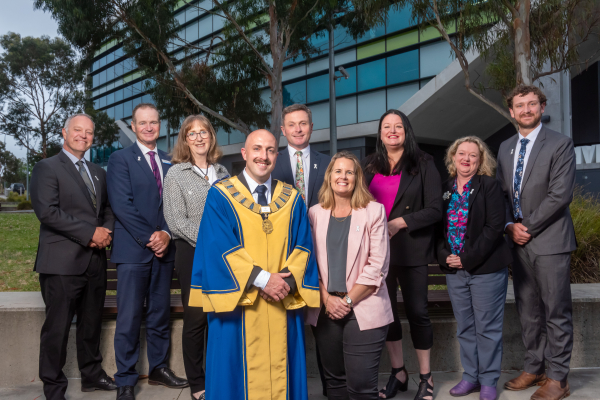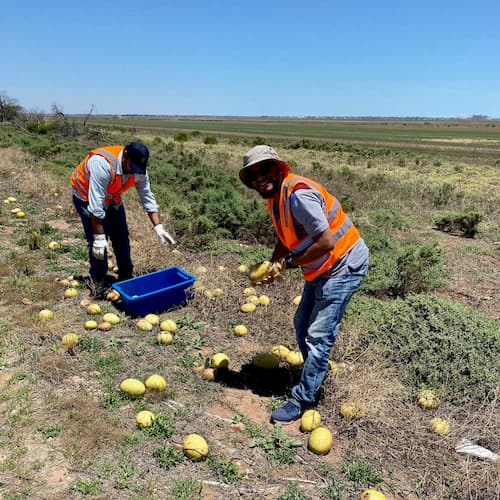In a little over 18 months, the Albanese Government has helped engineer a historic budget turnaround.
We know there’s more to do, but our budget is in much better nick thanks to our responsible economic management – that’s what this week’s mid‑year economic update showed.
The update Finance Minister Katy Gallagher and I released this week proves that without the efforts of the Albanese Government, we would have much higher debt, much bigger deficits and a much weaker overall budget position.
Our economic plan is all about easing inflation and easing the cost‑of‑living at the same time as we lay foundations for growth in our economy, but we can’t do any of those things without repairing the budget.
After delivering the first surplus in 15 years, the mid‑year update shows a $1.1 billion deficit in 2023‑24, with deficits and debt lower in every year of the forward estimates – a significant improvement compared to the May Budget and compared to what we inherited.
This improvement has been underpinned by three key components of our fiscal strategy: finding savings and restraining spending; returning upward revisions to revenue to the budget; and getting debt on a better trajectory.
In each of these key areas, the mid‑year economic update shows we are making welcome progress.
This week’s update includes $9.8 billion in savings, bringing the total savings by the Government since the 2022 election to $49.6 billion.
Around 99 per cent of net spending decisions in our latest budget update relate to unavoidable spending pressures and spending to clean up the mess and resolve legacy issues that were left by the former Government, including $1.5 billion to end the pandemic event visa, $392 million to continue the response to the COVID‑19 pandemic and $254 million to respond to biosecurity risks.
In addition, our average annual real spending growth is around five times lower than the average of the previous Government.
We’re not only finding savings and restraining spending, we’re responsibly returning upward revisions to revenue to the budget.
Many governments in recent history have received substantial upgrades to revenue, but it’s what you do with those upgrades that counts – and across the term of government, none have consistently banked a bigger proportion than us.
We’re returning 92 per cent of upward revisions to revenue since the May budget, and a cumulative 88 per cent since coming to government.
If we took our predecessors’ approach (banking around 40 per cent rather than 88 per cent), gross debt would be more than $240 billion higher in 2033‑34, interest payments would be around $80 billion higher over the 11 years to 2033‑34, we would not have had a surplus in 2022‑23 and we would have a deficit exceeding $40 billion in 2023‑24.
The upward revisions to revenue are in part due to Australians working more and earning more under a Labor government – with our strong labour market since the election accounting for a third of revenue upgrades over the four years to 2026‑27.
This kind of responsibility and restraint would be unrecognisable to our predecessors.
It has also seen us deliver a substantial improvement in our debt position.
Gross debt was projected to exceed $1 trillion in 2023‑24 at the time of the election. It’s now projected to be $147.0 billion lower, at $909.0 billion by the end of 2023‑24.
Gross debt is expected to peak at 35.4 per cent of GDP, 9.5 percentage points of GDP lower than the projection we inherited.
We don’t make these improvements to the budget for their own sake – we do it to address our current economic challenges and to build a stronger and more resilient economy.
Critically, at a time of moderating but high inflation, our fiscal strategy is working alongside monetary policy to reduce inflationary pressures in the economy.
We have also ensured that budget repair has not come at the expense of billions of dollars of cost‑of‑living relief, which is still being rolled out.
The ABS has confirmed that our cost‑of‑living policies like energy bill relief, childcare and rent assistance, have already reduced inflation by ½ a percentage point over the year to September.
Treasury estimates our cost‑of‑living policies are expected to reduce inflation by ¾ of a percentage point in the June quarter of 2024.
Our responsible approach has also made room for critical investments that boost the capacity of our economy and lay stronger foundations for growth – including in energy, housing and skills.
We know that people are under pressure as a result of higher global inflation and higher interest rates, and the economy is slowing in expected ways.
There’s no shortage of challenges in the Budget or the economy but the mid‑year Budget update showed we are making encouraging progress.
We’ve got low unemployment, workforce participation around record highs, more than 620,000 jobs created since we came to office, a pick‑up in wages growth and an expected return to annual real wages growth next year.
We can’t undo nine years’ worth of economic mismanagement in just over 18 months but we’re making welcome progress, and that’s what this week showed.
Our entire approach to the economy and the budget is defined by responsible economic management.
We’re doing what we responsibly can to help people in these tough times while laying the foundations for a stronger economy.







